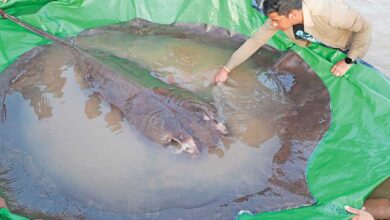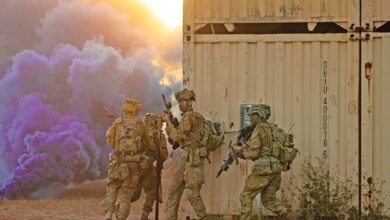Teaching hydration for peak performance

When it comes to quenching thirst on a sweltering summer day, some beverages do more harm than good, according to military health experts. To perform at peak levels, Soldiers should educate themselves on safe ways to rehydrate.
“Army-wide, heat injuries are on the rise with the highest rates in Soldiers less than 25 years old,” said U.S. Army Capt. Erica Jarmer, a registered dietitian, according to the Military Health System’s website, health.mil. Jarmer hosted a training event for hospital staff and Fort Campbell tenants on proper hydration for Soldiers and athletes. Dietitians and medics have a critical role in teaching health-related military skills, including tactical hydration.
Soldiers should hydrate regularly and frequently, even when they are not thirsty, Jarmer said. Water is usually the better choice over caffeinated or sugary beverages, which include soda, energy drinks, coffee, beer and alcohol, fruit juices, sweet tea and lemonade. Those beverages can pull water from the body and promote dehydration.
“Many Soldiers are so undereducated when it comes to taking care of themselves. We are required to ask a lot physically of our bodies, but we don’t always get the education needed to perform at our peak levels,” said Master Sgt. Jennifer Alvey, a medic and the noncommissioned officer in charge of Blanchfield Army Community Hospital’s Department of Primary Care.
“Hydration for tomorrow occurs today. Hydration for today occurred yesterday,” Jarmer said. “Often times, we’re playing catch-up. If Soldiers and athletes understand their baseline hydration needs and routinely maintain their hydration status, our need for reactive rehydration will decrease.”
Baseline needs are based on body weight. A rule of thumb is to consume a half ounce of fluid per pound each day. This equates to about 3 liters of fluid per day for men and 2 liters per day for women.
Once baseline hydration is established, adjustments can be made for environmental factors and physical activity. In hot, humid environments, at high altitude and with physical activity, more fluid is required to maintain hydration. FORUM Staff




